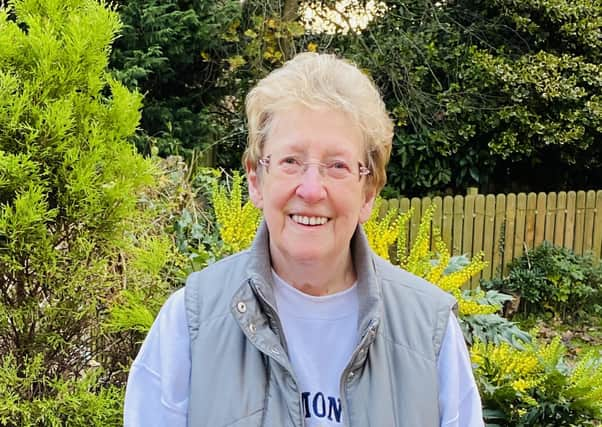Radiotherapy time cut by two-thirds for equestrian lover thanks to cancer research breakthrough


An equestrian lover who was diagnosed with early stage breast cancer has had her post-surgery radiotherapy reduced thanks to a new advance in cancer care introduced by Weston Park Cancer Centre in Sheffield, during the Covid-19 pandemic.
The new way of delivering care is the result of a 10-year nationwide research study which involved thousands of patients across the UK.
Advertisement
Hide AdAdvertisement
Hide AdThe trial findings showed that a lower quantity of radiotherapy given in fewer visits, but with higher daily doses, was as safe and effective as the standard three-week therapy for those undergoing radiotherapy following surgery for early stage breast cancer.
Brenda Garnett, 75, is among those to have benefited from the new way of delivering radiotherapy after a mammogram and biopsy revealed she had breast cancer.
“I’m a real stickler and insist on going for my breast cancer screening every three years. There was no outward sign of cancer, no lump, no puckering, nothing at all, but a few little white spots appeared on the mammogram. A biopsy confirmed the diagnosis. It was such a relief they had caught it so early.”
Brenda, who kept horses for 27 years and has been helping her daughter with her beekeeping business before the first lockdown hit, underwent surgery to have the cancer removed and this was the followed up by a one-week course of radiotherapy in September instead of the normal three weeks.
Advertisement
Hide AdAdvertisement
Hide Ad“I live all the way out in Eckington [on the outskirts of Sheffield], and I didn’t want to come on public transport as I was very vulnerable because of the operation.”
Dr Stephen Tozer-Loft, Head of Radiotherapy Physics at Weston Park Cancer Centre, said: “We are delighted to have made the switch to fewer radiotherapy treatment sessions during the pandemic.
“This is enabling breast cancer patients like Brenda to be treated with one-third of current radiotherapy sessions, saving 10 hospital visits.
“As one of the NHS Trusts involved in the groundbreaking study, we are proud to have now implemented this way of working to benefit patients like Brenda. We’d also like to thank the many patients who helped bring this amazing advance in cancer care to Weston Park Cancer Centre, by agreeing to participate in a clinical trial, and which has given hope to many in these unprecedented times.”
Advertisement
Hide AdAdvertisement
Hide AdIn the UK, one in eight women will be diagnosed with breast cancer during their lifetime.
Radiotherapy uses a very high-energy type of X-ray to destroy any cancer cells that may be left in the breast following surgery.
The full dose of radiation is usually divided into a number of smaller doses called fractions.
Patients receiving radiotherapy to the breast alone may be eligible for treatment in five treatments rather than 15.
Advertisement
Hide AdAdvertisement
Hide AdSupport The Yorkshire Post and become a subscriber today. Your subscription will help us to continue to bring quality news to the people of Yorkshire. In return, you’ll see fewer ads on site, get free access to our app and receive exclusive members-only offers. Click here to subscribe.
Comment Guidelines
National World encourages reader discussion on our stories. User feedback, insights and back-and-forth exchanges add a rich layer of context to reporting. Please review our Community Guidelines before commenting.